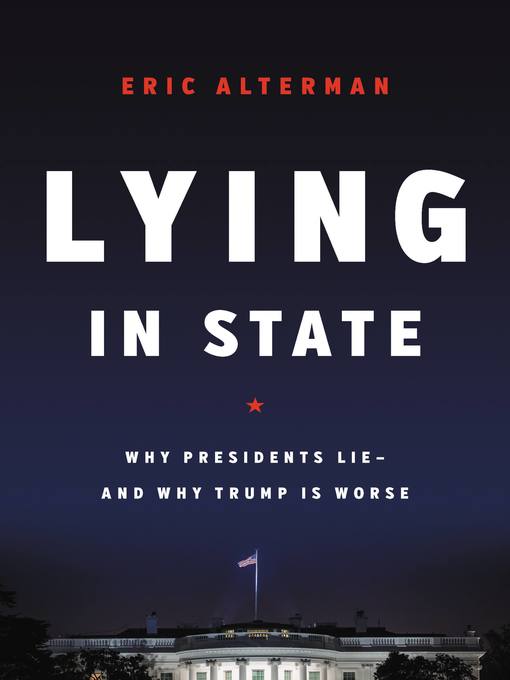
Lying in State
Why Presidents Lie — And Why Trump Is Worse
کتاب های مرتبط
- اطلاعات
- نقد و بررسی
- دیدگاه کاربران
نقد و بررسی

April 6, 2020
Nation columnist Alterman (coauthor, The Cause) delivers an administration-by-administration analysis of presidential deception from FDR to Donald Trump in this vigorously argued account. During the Cold War, Alterman contends, America’s rising role in global affairs contributed to the willingness of White House officials to deceive the media and the public in the name of national security. Political journalists contributed to the problem in the post-Watergate era by casting themselves as tough-minded Beltway insiders unbothered by the sausage-making of public policy. By general consensus, Alterman claims, the press viewed Jimmy Carter as an earnest lightweight, while the administrations of Ronald Reagan and George H.W. Bush were given license to mislead the public in pursuit of their foreign policy aims. Alterman accuses Trump of lying not only to achieve his legislative agenda, but to create an alternate, mass media–driven reality for his supporters, and documents explicit deceptions on immigration policies and Russian interference in the 2016 election. Though Alterman makes a strong case for the links between presidential dishonesty and the expansion of executive powers since WWII, and for the media’s culpability in failing to hold presidents to account, the book’s final chapters devolve into an anti-Trump screed. This aggrieved condemnation of political chicanery preaches to the choir.

April 15, 2020
All presidents lie--but some much more bigly than others. When Thomas Jefferson sent Lewis and Clark out, writes Nation columnist and author Alterman, he told the new nation a white lie: The pathfinders were supposedly exploring the Mississippi River, a story that, Jefferson wrote, "masks sufficiently the real destination"--namely, the Pacific Ocean. Why would he lie about such a thing? Perhaps to disguise his intentions from prying enemies or perhaps just for the joy of it. Just so, by Alterman's insightful account, Lyndon Johnson lied about nearly anything he could, though one of his biggest lies--concerning the Gulf of Tonkin incident--was based on such faulty information that he might not have known it was a lie. A Mexican invasion of the U.S., a promise not to raise taxes, weapons of mass destruction, oral sex in the Oval Office--presidents tell lies for manifold reasons, sometimes in the interest of national security, sometimes because the lie is the common coin of politics. There are exceptions. Even though "Barack Obama was not perfectly honest with the American people," he seems to have corrected course once a misstatement or overstatement was brought to his attention; investigators discovered only six "outright falsehoods" in his entire second term. All this brings us, of course, to the undisputed king of presidential fabulists, Donald Trump, who lies as if lies were mother's milk and who would confuse us were he ever to tell the truth. Alterman's merry inventory--which includes detailed breakdowns of many of the 10,000 lies calculated to have come from Trump's mouth between January 2017 and September 2019--is damning, just as much as is a critical moment at the end of the narrative, when MSNBC anchor Nichole Wallace finally closed a report by saying, "But the president isn't telling the truth." For followers of politics and its practitioners, a capable, readable history of a mendacious tradition.
COPYRIGHT(2020) Kirkus Reviews, ALL RIGHTS RESERVED.

























دیدگاه کاربران